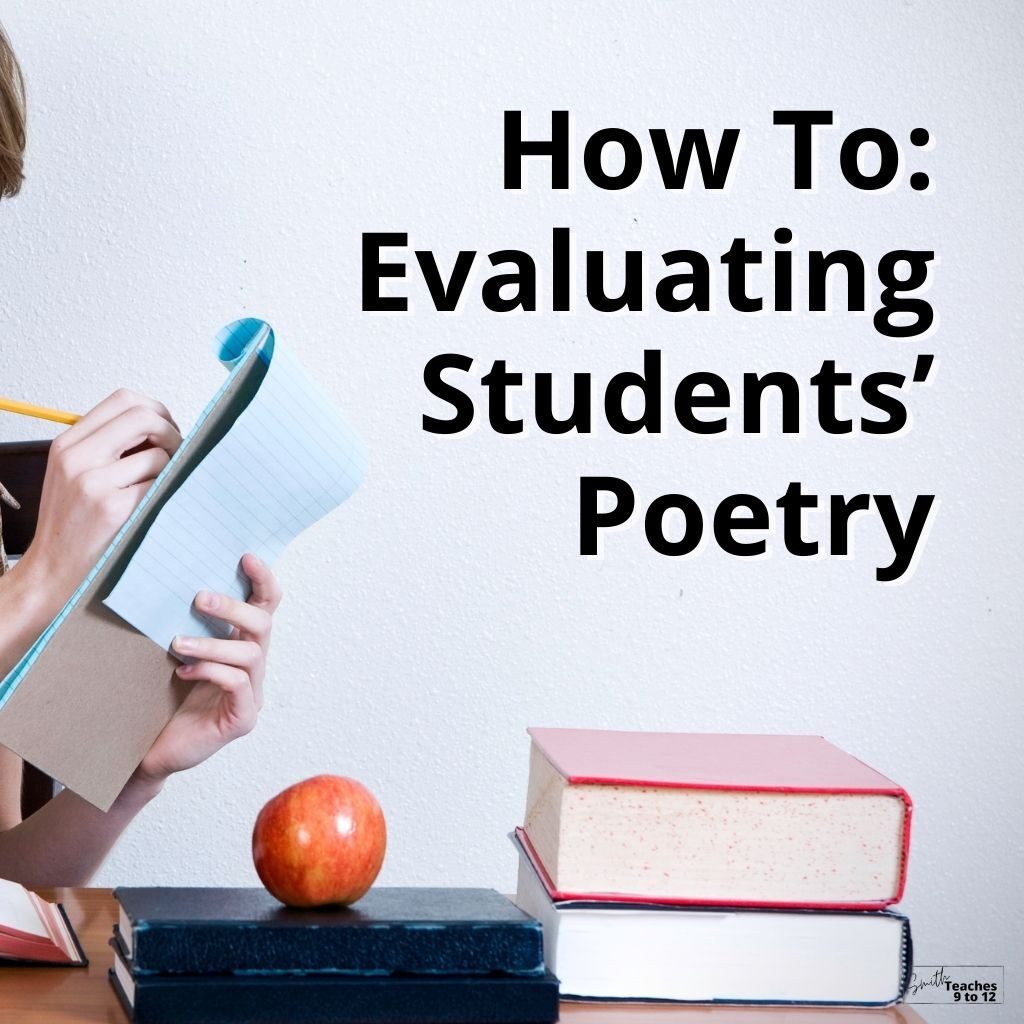Sharing is caring!
In all of my English classes, I’m on a mission to include poetry beyond National Poetry Month in April, both in terms of reading it, analyzing it, and writing it! That last one has become an integral part of classroom work. But how to evaluate students’ poetry work?
Sure, having students write poetry increases their comfort with poetry and leads to more effective analysis of poetry later. Writing poetry demystifies it for students and that is probably one of the best reasons I can give for encouraging the inclusion of creative writing in class at any time!
But now that students are writing poetry, what to do? There’s a time and place for a creative writing activity but what if you want to evaluate students’ poetry?
There is a challenge in trying to evaluate students’ poetry or any creative writing tasks. How do you give a grade for an aesthetic choice, particularly when poetry can be so personal?
For me, I needed to find a solution to shift from random but helpful creative writing to more noteworthy and grade-able creative writing. Read on for the process…
To introduce a gothic novel study I use a poetry-focused lesson that’s also inquiry-based. This can be done with any genre of novel and poetry in combination, it doesn’t have to be gothic!
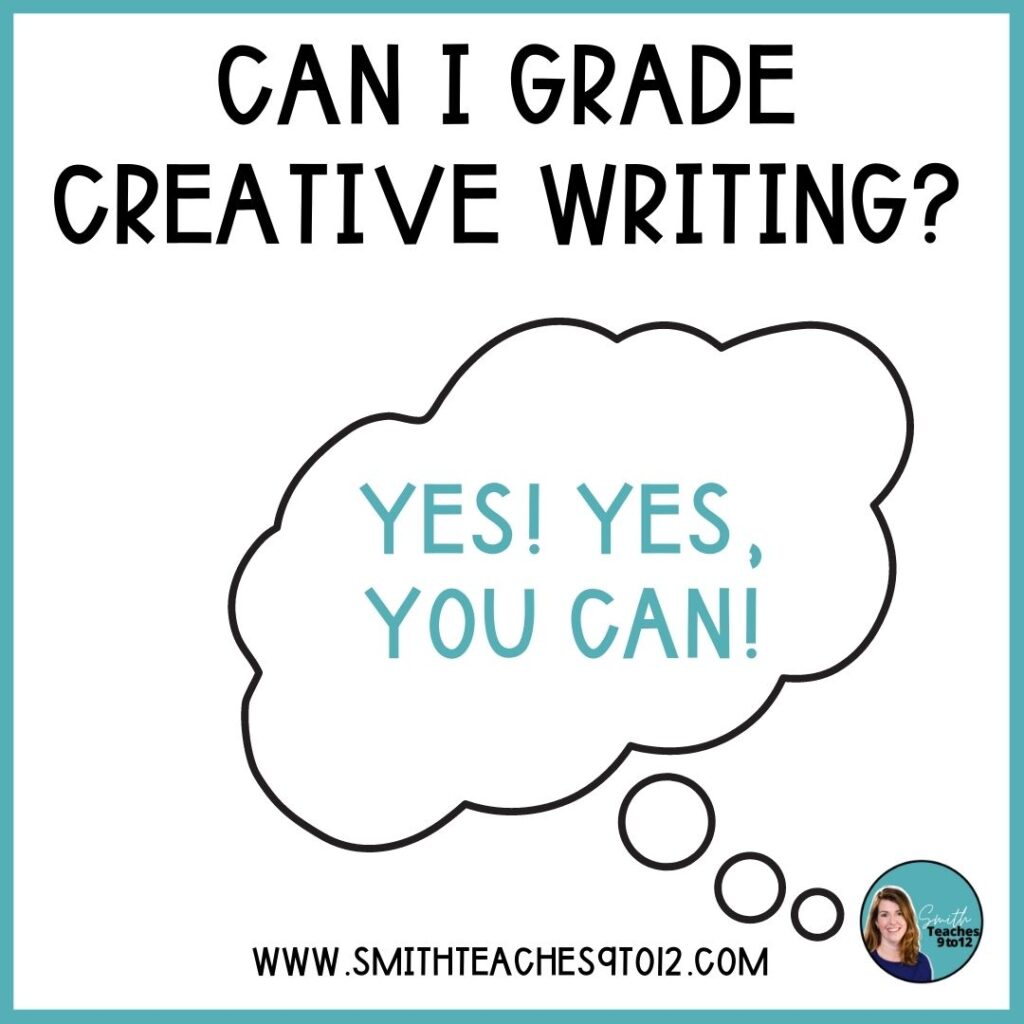
So here’s how I do it…
First, students investigate a variety of gothic-related texts including poetry, film clips, images and paintings. For poetry suggestions check out this post.
Students take note of what they see and why they think it might fit with the gothic – darker images/imagery, a sense of spooky, references to death, haunting, darkness, mystery, fear, danger, terror, sadness, supernatural, and more. They get together in a small group and create a fuller picture by pooling all of their thoughts onto chart paper.
Then to keep the mood they complete a ghost walk. A ghost walk is when students leave their chart paper to wander – quietly – to visit other groups’ work in order to bring knowledge back to their own. When they return to their paper, they add final thoughts and do one last – quicker – gallery walk of the findings.
This final walk – done by teachers and students – is the chance to ensure accuracy of findings (the teacher can correct as needed in the moment, say someone has indicated gothic poetry should have a happy ending). Students can then have their own jot notes about what is gothic or what makes something gothic.
Then is the application of their inquiry into the genre. They are tasked with writing a 10-14 line gothic poem of their own.
But before writing, it’s always good to review some basics about poetry:
- it doesn’t have to rhyme,
- lines can be broken up so when it says 10-14 lines it doesn’t mean sentences,
- figurative language is your friend!
And then the biggie – the poem itself will NOT be part of your grade.
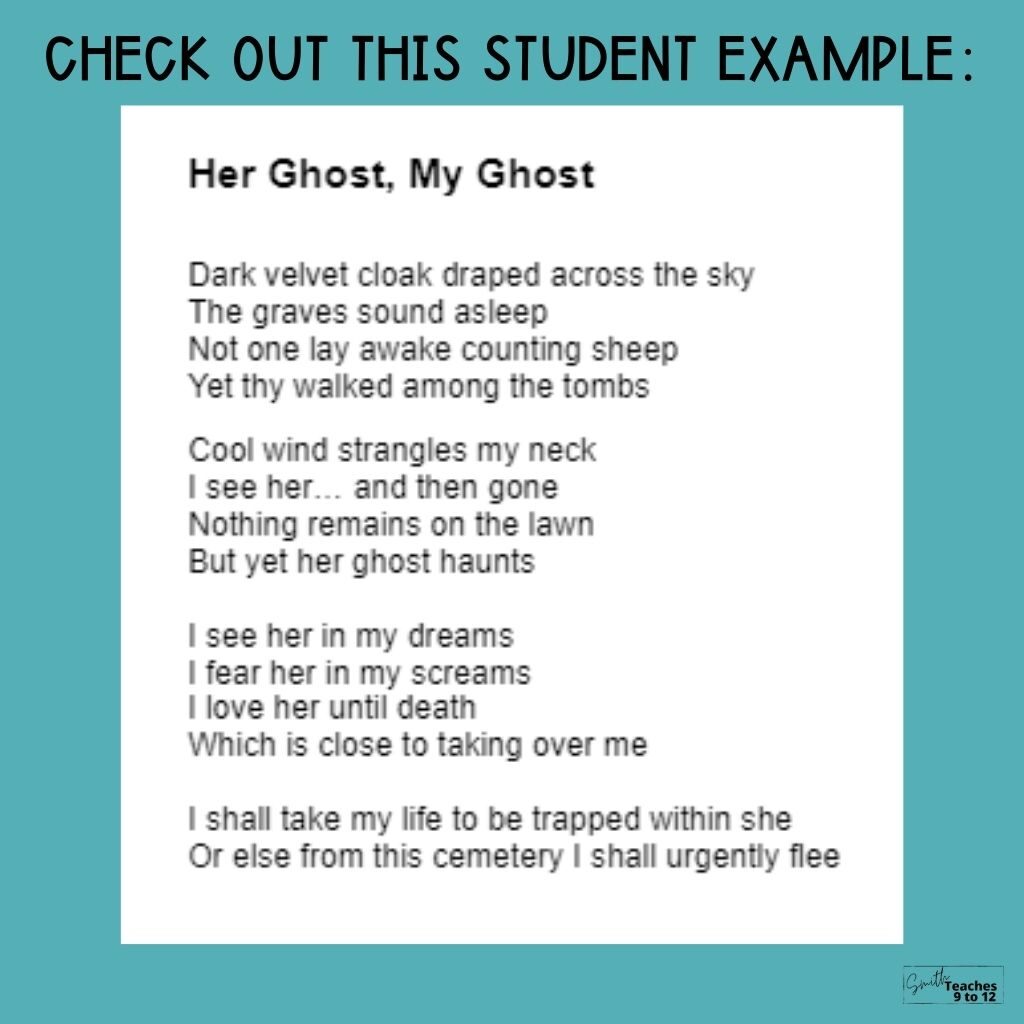
Instead, the component where you can evaluate students’ poetry is in the reflection post-poem.
Evaluating Students’ Poetry
Here are instructions to offer:
After you’ve completed your poem you will write or record a 200-word reflection that explains your choices and how they demonstrate elements that are gothic. Remember to be clear and specific; work directly with the language of the poem, and consult the rubric.
Using the option of written or recorded explanation provides differentiation for the learners in your class. The main goal is the explanation with support from the poem to ‘prove’ it’s gothic; in effect students are completing analysis of a poem but their own poem so it is a bit less daunting than analyzing Poe right away!
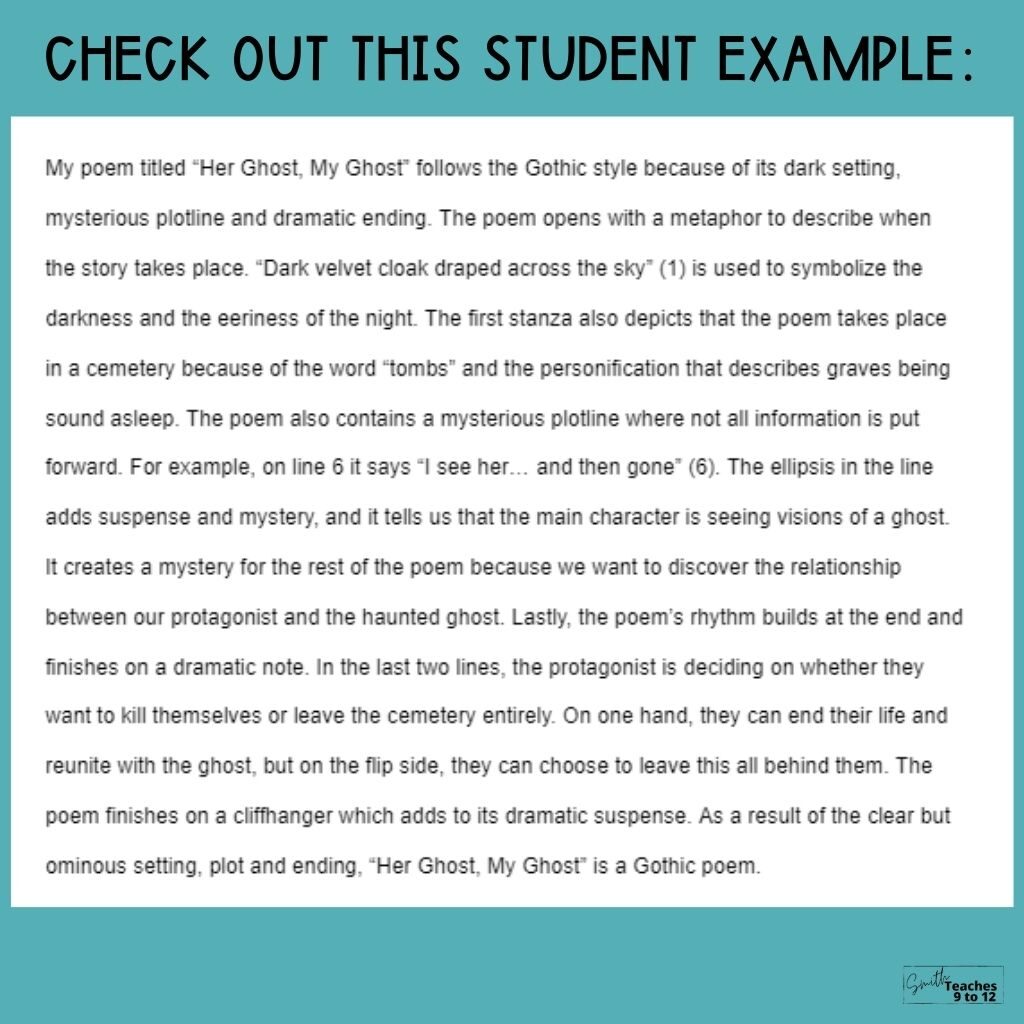
Things to note in the reflection:
- reinforces the paragraph form with the key structure and organization
- practices MLA citation for poetry
- includes direct and specific analysis of content (diction/word choice) and form/structure.
Each of these elements are easily transferable to the analysis of any other poem!
So whatever novel you might be studying in class, there’s likely a poetry form, genre, or subject that can tie into it. This assignment provides students a less pressured way to tackle poetry before exploring more established writers. From their own gothic poem, looking at Poe or Rossetti or even contemporary gothic poetry is just that little bit easier!

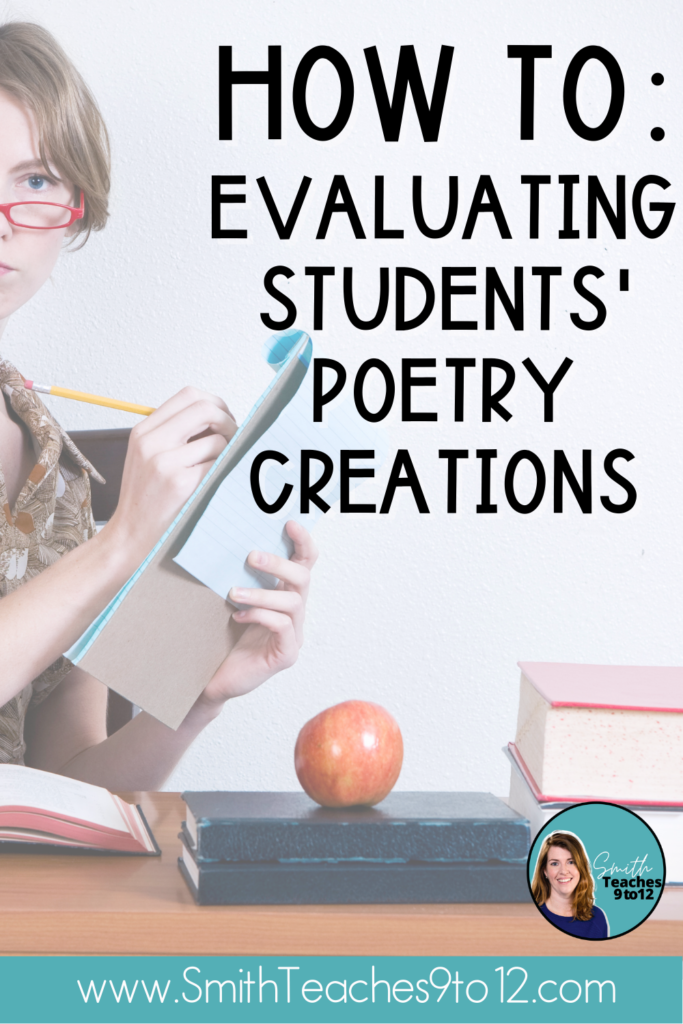
Related articles
- Exploring Gothic Poetry in High School English
- Poetry Creation and Risk Taking in ELA
- 3 Ideas for Poetry Creation in Everyday ELA Lessons
Have questions about the process? Want to chat any or all things poetry? Get in touch on Instagram – I’d love to connect!

